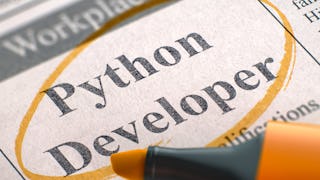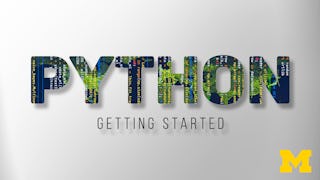This course is an introduction to computer science and programming in Python. Upon successful completion of this course, you will be able to:
1. Take a new computational problem and solve it, using several problem solving techniques including abstraction and problem decomposition. 2. Follow a design creation process that includes: descriptions, test plans, and algorithms. 3. Code, test, and debug a program in Python, based on your design. Important computer science concepts such as problem solving (computational thinking), problem decomposition, algorithms, abstraction, and software quality are emphasized throughout. This course uses problem-based learning. The Python programming language and video games are used to demonstrate computer science concepts in a concrete and fun manner. The instructional videos present Python using a conceptual framework that can be used to understand any programming language. This framework is based on several general programming language concepts that you will learn during the course including: lexics, syntax, and semantics. Other approaches to programming may be quicker, but are more focused on a single programming language, or on a few of the simplest aspects of programming languages. The approach used in this course may take more time, but you will gain a deeper understanding of programming languages. After completing the course, in addition to learning Python programming, you will be able to apply the knowledge and skills you acquired to: non-game problems, other programming languages, and other computer science courses. You do not need any previous programming, Python, or video game experience. However, several basic skills are needed: computer use (e.g., mouse, keyboard, document editing), elementary mathematics, attention to detail (as with many technical subjects), and a “just give it a try” spirit will be keys to your success. Despite the use of video games for the main programming project, PVG is not about computer games. For each new programming concept, PVG uses non-game examples to provide a basic understanding of computational principles, before applying these programming concepts to video games. The interactive learning objects (ILO) of the course provide automatic, context-specific guidance and feedback, like a virtual teaching assistant, as you develop problem descriptions, functional test plans, and algorithms. The course forums are supported by knowledgeable University of Alberta personnel, to help you succeed. All videos, assessments, and ILOs are available free of charge. There is an optional Coursera certificate available for a fee.





















